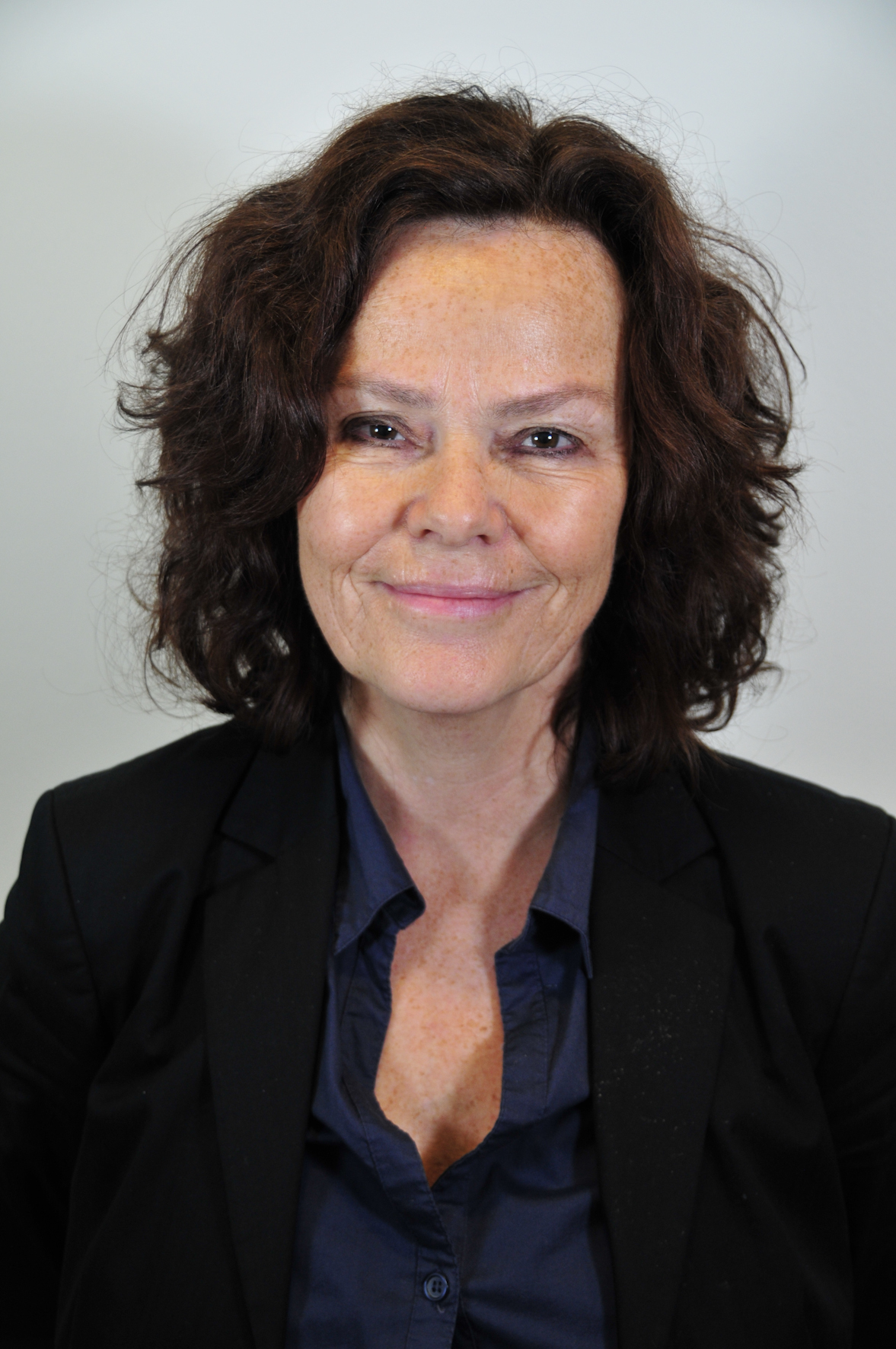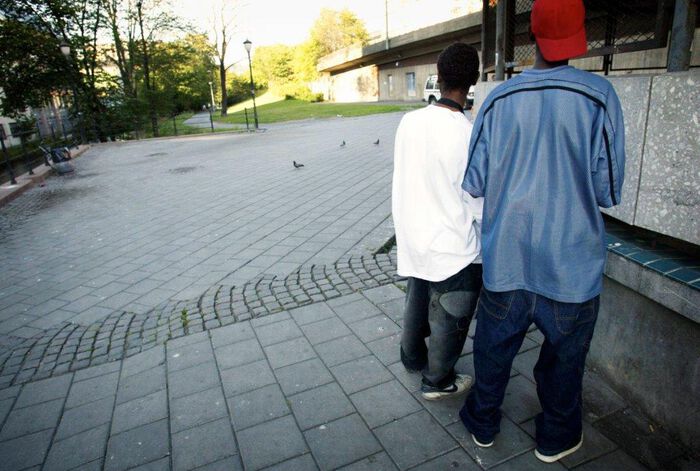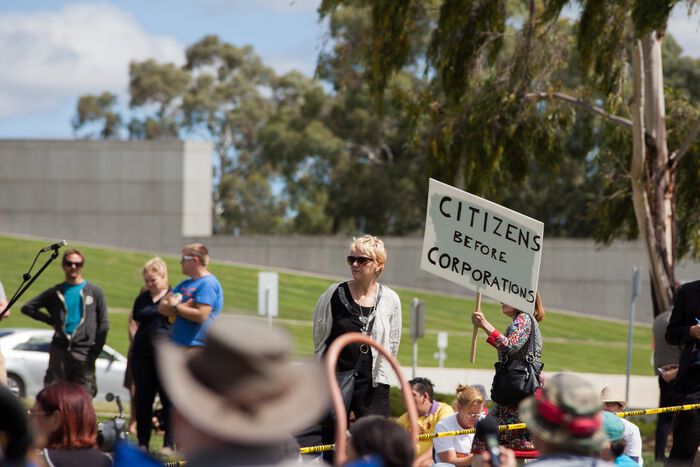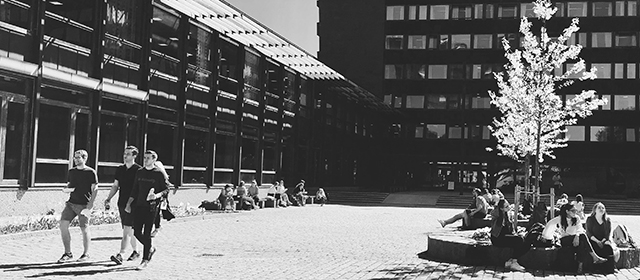The leader of the Confederation of Norwegian Enterprise, Kristin Skogen Lund, and the Gender Equality and Anti-Discrimination Ombud, Hanne Bjurstrøm, both recently told the newspaper Dagens Næringsliv that they support Ellingsæter's proposal. The reason is equality, says Ellingsæter:
Research shows that women are falling behind at work, largely because parental leave is unevenly distributed.
Anne Lise Ellingsæter, professor of sociology at the University of Oslo, has researched Norwegian family policy since the 1990s.
- I became more and more interested in the importance of politics for the labour market and also in the family. I have focused on comparing different countries. The welfare states in the Nordic countries were among the first to facilitate both men and women to be both workers and caregivers.
A big mandate

Ellingsæter led the expert committee "Public Support for Families", who submitted their findings in March 2017. The committee assessed all benefit schemes for families with children.
These schemes had not been examined as a whole for twenty years.
- The expert committee was given a broad mandate, in which we were to examine the goals of family policy. We were also directed to pay particular attention to child allowance. Family policy is a significant part of the government’s work, and between 8.5 and 9.5 billion Euros is distributed annually to support families with children, and this support has an important impact on their lives.
The committee's proposals, however, were constrained to the current budgetary framework, which meant that they could not propose new measures that would raise government expenditure. Therefore, they would investigate how the billions already in the budget could be used in the best possible way.
Equality for parents
The committee agreed that parents should be considered equal, also in practice.
- We proposed an equal division of parental leave - that is, the parents each receive 50 percent of the leave - and this was a conscious decision. We would move the mindset from quotas and return to discussing the parents as actually equal caregivers. In our opinion if the answer is yes to this question, then it means that all mothers and fathers should receive individual rights to parental leave.
The committee agreed that parents should be considered equal, also in practice.
In the autumn of 2017, all parties, with the exception of FrP (The Progress Party), went into the election with the policy that part of parental leave should be earmarked for each parent. Now, the debate now is over how much of the leave will be earmarked for each.
Paternity leave - quotas or not quotas?
The duration of parental leave is 49 weeks on full salary, or 59 weeks on 80% of salary. The three weeks before and six weeks after childbirth are reserved for the mother. The Ellingsæter committee proposes that the remainder of the leave be distributed evenly between the two parents. The government is currently proposing a tripartite division. This will comprise a division of parental leave into three, in which each parent receives 15 weeks, while they can distribute the remaining 16 weeks among themselves.
The question of whether there should be a quota for each parent in the leave scheme has long been an issue of contention in family policy, explains Ellingsæter.
- The Conservative Party of Norway (Høyre) has at various times supported quotas for paternal leave, but at their 2010 annual convention they voted against quotas. The current Minister of Children and Equality Linda Hofstad Helleland (Høyre) at that time strongly opposed quotas, as quotas restricted parents' freedom of choice. Now, Venstre (the Liberal Party of Norway) is a member of the coalition government, and the tripartite model that Helleland is now proposing is the model proposed by Venstre. Parts of Høyre and the third coalition partner FrP have wanted to remove quotas completely.
Another issue of contention has been the “Cash Benefit” that is paid to parents of 1 and 2 year-olds that do not attend Nursery School.
Heated debate over the Cash Benefit
- When the cash benefit was introduced in 1998 the debate was just as heated as the debate over EU membership, says Ellingsæter.
However, recent studies of the scheme have showed major, unexpected changes:
- Initially, three out of four parents received the cash benefit, but it turned out that what they really wanted was a place for their child in nursey school, because when nursery school places were expanded so that a place was available for all applicants, the number of recipients of the Cash Benefit fell dramatically. It was believed that the nursery school sector would decline, but on the contrary, the waiting lists for nursery schools grew and grew!
The concept of returning to work "early" has changed dramatically.
The political parties had long agreed on nursery school places for all children, but not followed up with money, says the family researcher. In the early 2000s the nursery school policy was passed and a lot of money was invested in it. A maximum price for nursery schooling was introduced, and in 2009 all children from the ages of 1 to 5 were given the right to a nursery school place. The so-called Red–Green Coalition Government removed the right to Cash Benefit for two-year-olds in 2012, and now only about 25 per cent of one-year olds receive the benefit. This has affected the legitimacy of the Cash Benefit scheme:
- As so few receive the benefit, the group has become homogeneous and consists of a large number of mothers with low education and mothers of immigrant background. I would be surprised if it isn’t phased out. This depends on The Christian Democratic Party (KrF) and the argument they still use is freedom of choice; that is, the parents themselves must be allowed to choose whether or not they want their children to go to nursery school.
- However, The Christian Democrats also acknowledge the problem that immigrant women are overrepresented in this group. These mothers do not work and their children do not go to nursery school. This has a significant effect on their children's language development, says Ellingsæter.
The boundary between the state and the family
The boundary between the state and the family is still being negotiated through changes in family policy, according to Ellingsæter, and, in particular, publicly subsidized nursery schools have been a controversial topic for a long time.
The majority of the committee suggested that we replace a universal Cash Benefit with a universal service, the nursery school.
- We got a nursery school law in the 1970s. All parties except FrP supported this law, but there was a great deal of disagreement about what nursery school should be. The Centre-Right was then skeptical of nursery schools for young children, and they definitely did not want full-time nursery schools, the researcher says.
- The interesting thing is how parents have utilized the system. It turned out that parents did want full-time nursery schools and they have filled all the places as they have been created. This again normalized how we think about child welfare – now, more than 70 per cent of one-year olds attend nursery school, and most parents are happy to have this opportunity.
Ellingsæter says we have to think about what the alternative to nursery school really is:
- Since the 1980s, the vast majority of mothers of small children have been in work. The unregulated day-care market was the only option for child day-care for a long time. There is an idealized concept of stay-at-home mums, but that is not a genuine alternative to nursery schools! The question is what the state should finance, and what incentives it should give.
Child Benefit
Another major expense item in the government budget for families is Child Benefit. It has not been regulated for 20 years and there has been a lack of political will to increase it, Ellingsæter says. It would have cost 800 million Euros to restore it to the value it had in 1996. The question is whether this is the best use of money given the situation of families today?
- Income trends have been good for families with two revenues, so is it really necessary? The majority of the committee suggested that we replace a universal child allowance with a universal service, the nursery school. The vast majority of families today do not need income transfers, and with free nursery school and supervised after-school activity (SFO/AKS) we will remove all economic barriers for using these services, says Ellingsæter.
- 91 per cent of children aged one to five years now attend nursery school. The nursery school has become a social arena, an important meeting place for parents from many social groups - just like schools. We believe that the nursery school's function as a venue for integration is very important, she continues.
Many people, however, defend a universal child allowance for which all families with children receive the same amount. The idea is that if everyone gets the same it creates trust in the welfare state, explains Ellingsæter.
In addition to the free nursery school, a majority of the committee proposed a needs-tested doubling of child allowance for those on low income:
- If we provide the lowest income group with a larger sum, then it will help reduce child poverty to a greater extent than if we give an extra 100 Euros to everyone.
The motivation to work is another factor:
- When we propose concrete policies we always encounter dilemmas and opposing interests. Free nursery school will be a motivating factor for people to increase participation in the job market. If we double the child allowance, it might weaken the motivation for some mothers to seek work. However, it may be more important to ensure that children grow up under good material conditions.
We shape the policy
A quick reflection shows how much opinion has changed about the needs of mothers, fathers and children:
- It is interesting to see at how the governments thought about this area 40 years ago, in 1978, when parental leave was expanded from 12 weeks to 18. For the first time fathers became entitled to a part of the leave, and the reason for this was that some mothers wanted to go back to work before 18 weeks and that it would therefore be reasonable for the father to be compensated if he took over.
- The idea of what going back to work "early" means has changed dramatically! With splitting the leave in two, as the committee I led has suggested, mothers would be home for six months. Some people would say this is too short. Family politics has considerable standardising power; We get used to the new arrangements quickly and they affect how we think.
This is what is interesting with politics, says Ellingsæter:
- It affects society, and new generations come to think that things should be as they are. This will create new demands, which in turn will affect policy.
Read the report NOU 2017 (In Norwegian): 6 Public support for families with children
Author: Nina Alnes Haslie





